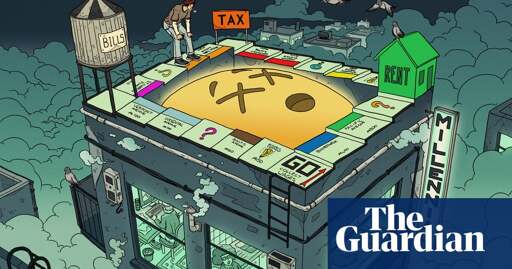Claire*, 42, was always told: “Follow your dreams and the money will follow.” So that’s what she did. At 24, she opened a retail store with a friend in downtown Ottawa, Canada. She’d managed to save enough from a part-time government job during university to start the business without taking out a loan.
For many years, the store did well – they even opened a second location. Claire started to feel financially secure. “A few years ago I was like, wow, I actually might be able to do this until I retire,” she told me. “I’ll never be rich, but I have a really wonderful work-life balance and I’ll have enough.”
But in midlife, she can’t afford to buy a house, and she’s increasingly worried about what retirement would look like, or if it would even be possible. “Was I foolish to think this could work?” she now wonders.
She’s one of many millennials who, in their 40s, are panicking about the realities of midlife: financial precarity, housing insecurity, job instability and difficulty saving for the future. It’s a different kind of midlife crisis – less impulsive sports car purchase and more “will I ever retire?” In fact, a new survey of 1,000 millennials showed that 81% feel they can’t afford to have a midlife crisis. Our generation is the first to be downwardly mobile, at least in the US, and do less well than our parents financially. What will the next 40 years will look like?



I accidentally wiped my comment. Now it will not be as good as it was.
Derp. Still, everyone needs education.
Dull, mind numbing work that should have been automated long time ago. And we are talking about schools, not universities.
Schools are not medical universities. But even in school you will be taught first aid. And basic anotomy in biology class.
This is bad. Terrible.
This question does not measure inteligence, it measures erudition. Inteligence, erudition and wisdom are different things. Question for intelligence would be like “bat and ball cost 1.1$, bat costs 1$ more than ball, how much ball costs?”.
We are Homo sapiens, not Homo ergaster. Tractor better contributes “purely manual but not much intellectual labor”.